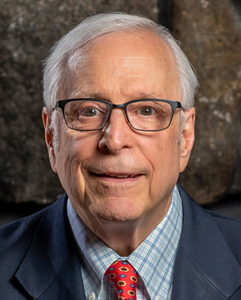Every time I am in a meeting and my mind begins to wander, I have to kick myself to get back into the game. Sometimes, I also find myself filtering what is being said and applying my own belief system to what is being communicated. I know these are weaknesses and I perpetually need to work on being open minded so I hear what is being said and more importantly, what is being communicated. It is not easy. But, I know that it is important as a leader to have effective listening skills. Listening is the least practiced of the four communication skills—writing, reading, speaking, and listening. During our school years, we learn to read and write. We also may take a communications (speaking) course. But do we ever take a listening course?
When I listen in to Chris Matthews on Hardball, I want to get up from my seat, go over, and ring his neck. I don’t think I have ever heard him allow another individual to complete a sentence. The number one weakness in listening skills is the habit of interrupting others in mid sentence. It shows lack of respect and disregard for the other individual’s viewpoint. How can you be an effective leader if you continually show you are self-centered by disregarding everyone else’s viewpoint?
We can’t learn when our mouth is flapping. We build trust by learning and to learn we must listen.
“God gave us two ears and one mouth, so we can hear twice as much as we say.”
— Source Unknown
Listening is an attitude, a mindset that dictates whether you are either self-centered or other-centered. If you are self-centered, you are most likely cutting others off, refusing to give feedback, not engaged, and daydreaming among others. If you are other-centered, you are focused on listening, but more importantly you are hearing what is being said and are working intensely to connect the dots—the hidden messages, the ones that are not openly communicated yet are there for the taking.
“When I am getting ready to reason with a man, I spend one-third of my time thinking about myself and what I am going to say and two-thirds about him and what he is going to say.”
— Abraham Lincoln
If you want to improve your listening skills, try this on for size. When another individual is speaking, wait two seconds after they have completed their sentence to make your observations. Think about making a statement that clarifies what they communicate so you fully understand and appreciate what has been said. Stephen Covey, the noted author of The 7 Habits of Highly Effective People points out in Habit 5 that “most people do not listen with the intent to understand; they listen with the intent to reply.” Add to what people have said. Use it as an opportunity to build upon their viewpoint. With the proper attitude for listening to others, the potential for identifying new opportunities will emerge. It might be in a boring presentation that the seed of an idea is talked about—the seed that could lead to the next significant innovation. Be open to the possibilities.
Use listening as an opportunity to grow. Significant leaders’ success is predicated upon their ability to listen and understand others’ viewpoint. Stepping into the shoes of another individual is a prerequisite to empathetically understanding them. Again, as Covey points out, this is where interdependence with others is a precursor for having win/win settings, a most sought after area of effective leadership.
Effective leadership is also the process of growing. Yes, leadership includes traits and behaviors, but effective leaders are always educating themselves in new ways of doing things and adjusting their style, behavior, and their leadership capacity by learning from others. The rare leader makes it to the top without having a mentor along the way. Being open to feedback—listening—is one of the most important attributes of becoming a significant leader. Some leaders will do their own audits (of themselves) and see if their actions line up with their shared beliefs. By the way, it doesn’t necessarily have to be bad since there can be many hidden positives (strengths) for which you are not regularly aware. Don’t be afraid to have to look at yourself from all angles. Just as you listen to others, listen to yourself as you observe what you see.
“One who cares is one who listens.”
— J. Richard Clarke
Now ask yourself… “Am I a Leader?”

